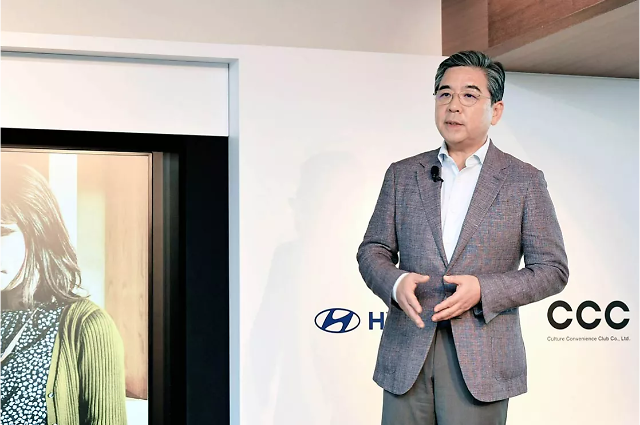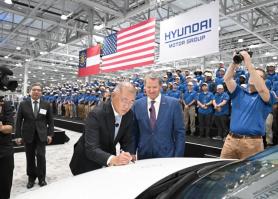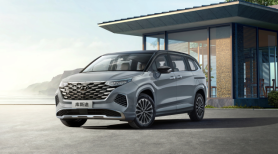
[Courtesy of Hyundai Motor]
It's been difficult for foreign carmakers to expand their business scope into Japan’s automotive market due to Japanese drivers' high demands for domestic brands. According to the Korea Automotive Technology Institute, Japanese brands including Toyota accounted for 93.4 percent of some 4.4 million new vehicles sold in 2021. Hyundai Motor sold only 515 cars from May 2022 to January 2023, which accounts for less than 0.01 percent of all imported vehicles in the same period.
Hyundai started its car-sharing service called "MOCEAN" at T-Site on June 23. Anyone can use Hyundai's IONIQ 5 and charging facilities near Tsutaya Books, a famous bookstore with many different art books. The bookstore also has music and DVD sections, and Japanese convenience store franchise chain FamilyMart.
The two sides will cooperate in developing personalized services related to eco-friendly vehicles. "Through this collaboration, we expect to create new opportunities through various endeavors," Hyundai Motor CEO Chang Jae-hoon said. He added: "In particular, CCC, which plans new lifestyles by thoroughly analyzing customers' preferences, and Hyundai Motor's ZEV (zero-emission-vehicle) culture will work together to build a differentiated Hyundai brand image."
Hyundai made a foray into the Japanese automotive market in 2001, but it stopped the operation of its most businesses in 2009 in the island country. After revealing its plan to re-enter the Japanese market in February 2022, the automaker has sold electric vehicles (EVs) such as IONIQ 5 and Nexo, a hydrogen fuel cell EV since May 2022.
Hyundai is currently running an exhibition space where visitors can explore the functions of IONIQ 5 and Nexo in Harajuku, the central district of Tokyo. 50 units of IONIQ 5 units were supplied to the Kyoto headquarters of MK Taxi, a major taxi service company in Japan.
Copyright ⓒ Aju Press All rights reserved.




